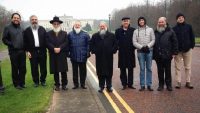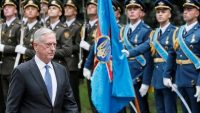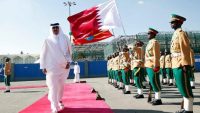What Did the Kurds Get Out of the Referendum?
On September 25th, the Kurds of Iraq indicated for the second time in 12 years that they wish to be free of the rest of the country. While the final results are not yet in, early indications are that it was an overwhelming victory for “yes.” That sentiment cannot come as a surprise. Feeling cheated out of a state of their own after the World War I, having fought central governments that suppressed their aspirations, and suffering grievously in the process, Kurds understandably see independence as the only viable escape from further such woe.
Yet for statehood to arise, a people’s right to self-determination and their desire to exercise it must be matched with possibility.… Seguir leyendo »













